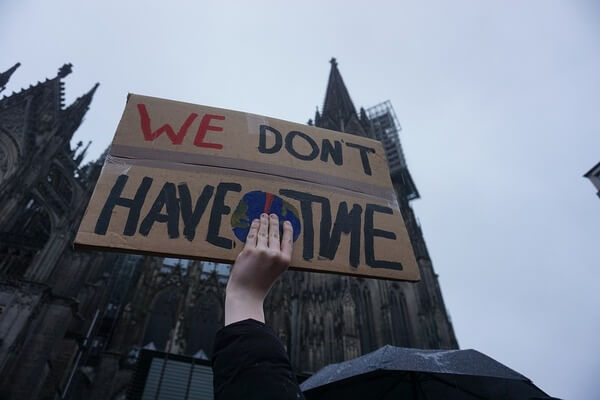News Release from windfair.net
Wind Industry Profile of
Global Earth Overshoot Day: 22 August 2020
Earth Overshoot Day marks the day when humanity's demand for ecological resources and services in a calendar year exceeds the amount that the Earth can regenerate this year. This is done by comparing two mathematical quantities: on the one hand, the biological capacity of the earth to build up resources and absorb waste and emissions, and on the other hand, the demand for forests, land, water, arable land and fishing grounds that people currently consume for their way of life and economic activity, as explained by the German development and environmental organisation Germanwatch.
The Earth Overshoot Day has been moved forward in the calendar every year so far. While in the 1970s it was still in December due to the lower consumption of resources, last year it was already on 29 July - as early as never before.
This year, the earth is being given a short break, as the day has moved back for the first time in the calendar and is now 22 August 2020. This means that in order to cover the current consumption of resources, mankind would currently need 1.6 earths.
However, humanity's consumption of resources has not consciously decreased this year, but can be attributed to the reduction in consumption due to the corona crisis. "The fact that Earth Overshoot Day is postponed this year is solely a consequence of the corona pandemic and not yet a trend reversal," says Steffen Vogel of Germanwatch. "If this is not to remain a one-off effect, the investments for economic recovery after the pandemic must be consistently linked to sustainability. Our economy must no longer be geared towards profit, which undermines climate goals and human rights. The use of resources must be reduced."

From saturday on we live on credit (Image: Pixabay)
At the same time, the global pandemic offers a unique opportunity: "We are at a crossroads worldwide in the fight against the climate and biodiversity crisis," emphasises Jan Göldner from NAJU (Nature Conservation Youth in NABU). "Either we use the currently necessary support of the economy for incentives and sustainable investments in climate and resource protection or we miss this opportunity and take a huge step backwards".
This threatens the so-called rebound effect next year. According to Global Footprint Network, the global Ecological Footprint was reduced by 9.3 percent in 2020 compared to the same period of the previous year, but there is a risk that positive effects on the climate and biodiversity will be immediately cancelled out next year because, for example, considerably more CO2 will be emitted again when the economy recovers worldwide. As the figures show, the main factors behind the shift this year were the carbon footprint (reduced by 14.5% from 2019) and the footprint of forest products (reduced by 8.4% from 2019).
"If we don't make an ambitious change of course now, the gap between rich and poor will continue to widen worldwide, waste volumes will continue to increase and it will become more expensive to avert these crises - all on the back of our and future generations," warns Constantin Kuhn from the board of BUNDjugend.
"Our growth-oriented economy continues to be at the expense of the people in countries of the Global South," adds Julius Neu from FairBindung. "A good life for all will only be possible if we fundamentally change the way we produce and consume".
Chilean Environment Minister and COP25 President Carolina Schmidt reflects on climate protection in the COVID era (Source: Earth Overshoot Day)
- Author:
- Katrin Radtke
- Email:
- press@windfair.net
- Keywords:
- Earth Overshoot Day, global, ressources, coronavirus, COVID-19, pandemix, calender, date, Earth, mankind, humanity, cimate action, climate protection
























